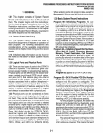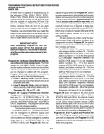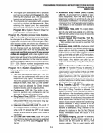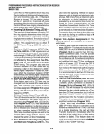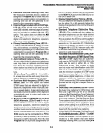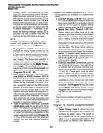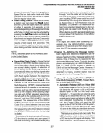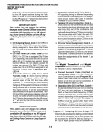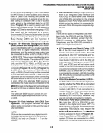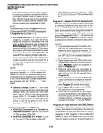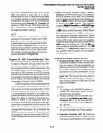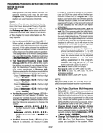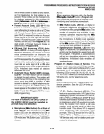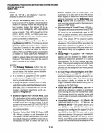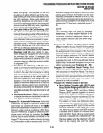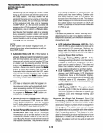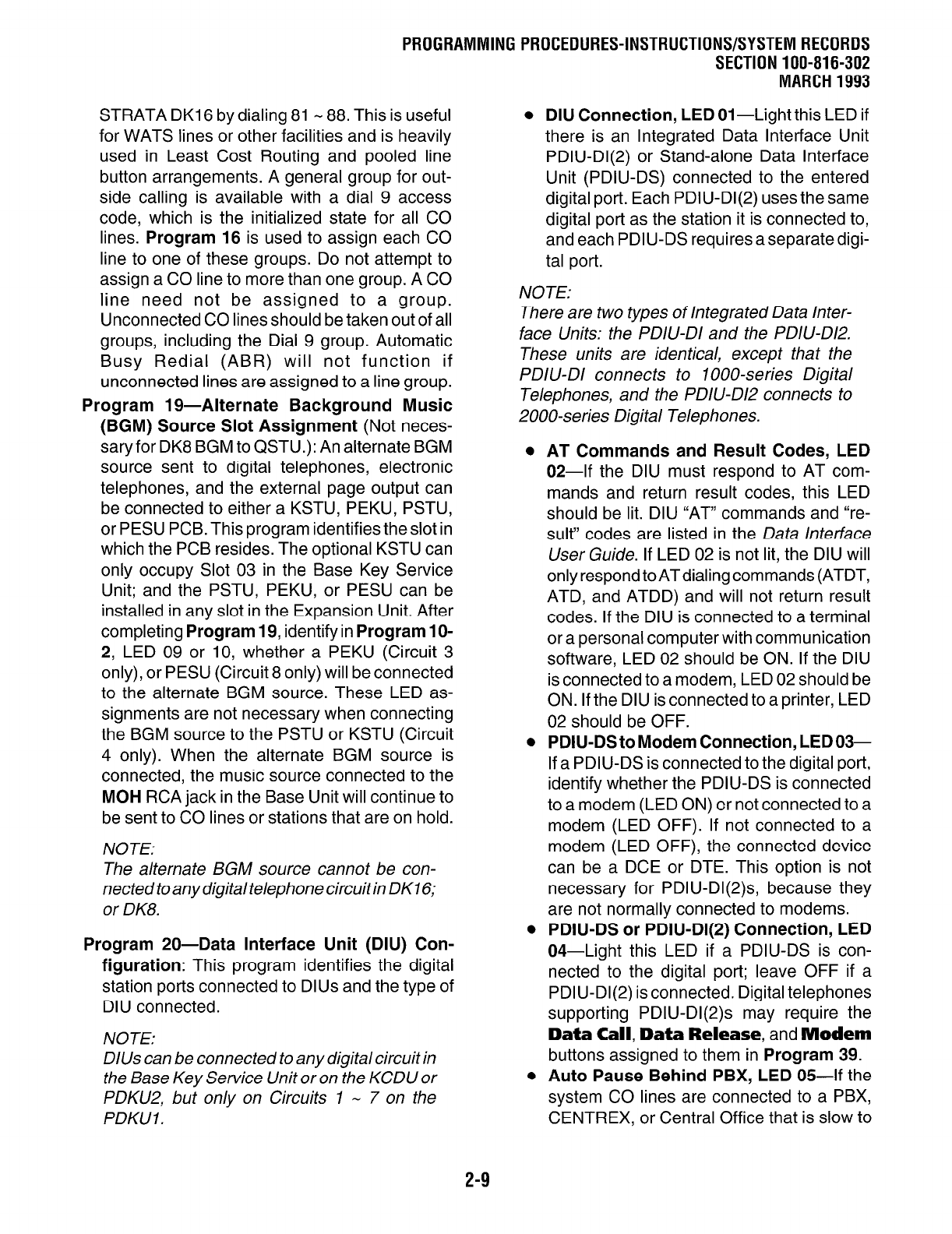
STRATA DK16 by dialing 81 - 88. This is useful
for WATS lines or other facilities and is heavily
used in Least Cost Routing and pooled line
button arrangements. A general group for out-
side calling is available with a dial 9 access
code, which is the initialized state for all CO
lines. Program 16 is used to assign each CO
line to one of these groups. Do not attempt to
assign a CO line to more than one group. A CO
line need not be assigned to a group.
Unconnected CO lines should be taken out of all
groups, including the Dial 9 group. Automatic
Busy Redial (ABR) will not function if
unconnected lines are assigned to a line group.
Program 1 g--Alternate Background Music
(BGM) Source Slot Assignment (Not neces-
sary for DK8 BGM to QSTU.): An alternate BGM
source sent to digital telephones, electronic
telephones, and the external page output can
be connected to either a KSTU, PEKU, PSTU,
or PESU PCB. This program identifies the slot in
which the PCB resides. The optional KSTU can
only occupy Slot 03 in the Base Key Service
Unit; and the PSTU, PEKU, or PESU can be
installed in any slot in the Expansion Unit. After
completing Program 19, identify in Program 1 O-
2, LED 09 or 10, whether a PEKU (Circuit 3
only), or PESU (Circuit 8 only) will be connected
to the alternate BGM source. These LED as-
signments are not necessary when connecting
the BGM source to the PSTU or KSTU (Circuit
4 only). When the alternate BGM source is
connected, the music source connected to the
MOH RCA jack in the Base Unit will continue to
be sent to CO lines or stations that are on hold.
NOTE:
The alternate BGM source cannot be con-
nected toanydigital telephone circuitin DK16;
or DK8.
Program 20-Data Interface Unit (DIU) Con-
figuration: This program identifies the digital
station ports connected to DlUs and the type of
DIU connected.
NOTE:
D/Us can be connected to any digital circuit in
the Base Key Service Unit or on the KCDU or
PDKUZ, but only on Circuits I - 7 on the
PDKUl.
SECTION 100-816-302
MARCH1993
l
DIU Connection, LED 01-Light this LED if
there is an Integrated Data Interface Unit
PDIU-DI(2) or Stand-alone Data Interface
Unit (PDIU-DS) connected to the entered
digital port. Each PDIU-Dl(2) uses the same
digital port as the station it is connected to,
and each PDIU-DS requires a separate digi-
tal port.
NOTE:
There are two types of Integrated Data Inter-
face Units: the PDIU-DI and the PDIU-Dl2.
These units are identical, except that the
PDIU-DI connects to IOOO-series Digital
Telephones, and the PDIU-Dl2 connects to
ZOOO-series Digital Telephones.
AT Commands and Result Codes, LED
02-If the DIU must respond to AT com-
mands and return result codes, this LED
should be lit. DIU “AT” commands and “re-
sult” codes are listed in the Data Interface
User Guide. If LED 02 is not lit, the DIU will
only respond to ATdialing commands (ATDT,
ATD, and ATDD) and will not return result
codes. If the DIU is connected to a terminal
or a personal computer with communication
software, LED 02 should be ON. If the DIU
is connected to a modem, LED 02 should be
ON. If the DIU is connected to a printer, LED
02 should be OFF.
PDIU-DS to Modem Connection, LED03-
If a PDIU-DS is connected to the digital port,
identify whether the PDIU-DS is connected
to a modem (LED ON) or not connected to a
modem (LED OFF). If not connected to a
modem (LED OFF), the connected device
can be a DCE or DTE. This option is not
necessary for PDIU-Dl(2)s, because they
are not normally connected to modems.
PDIU-DS or PDIUDl(2) Connection, LED
04-Light this LED if a PDIU-DS is con-
nected to the digital port; leave OFF if a
PDIU-Dl(2) isconnected. Digital telephones
supporting PDIU-Dl(2)s may require the
Data Call, Data Release, and Modem
buttons assigned to them in Program 39.
Auto Pause Behind PBX, LED 05-If the
system CO lines are connected to a PBX,
CENTREX, or Central Office that is slow to
2-9



